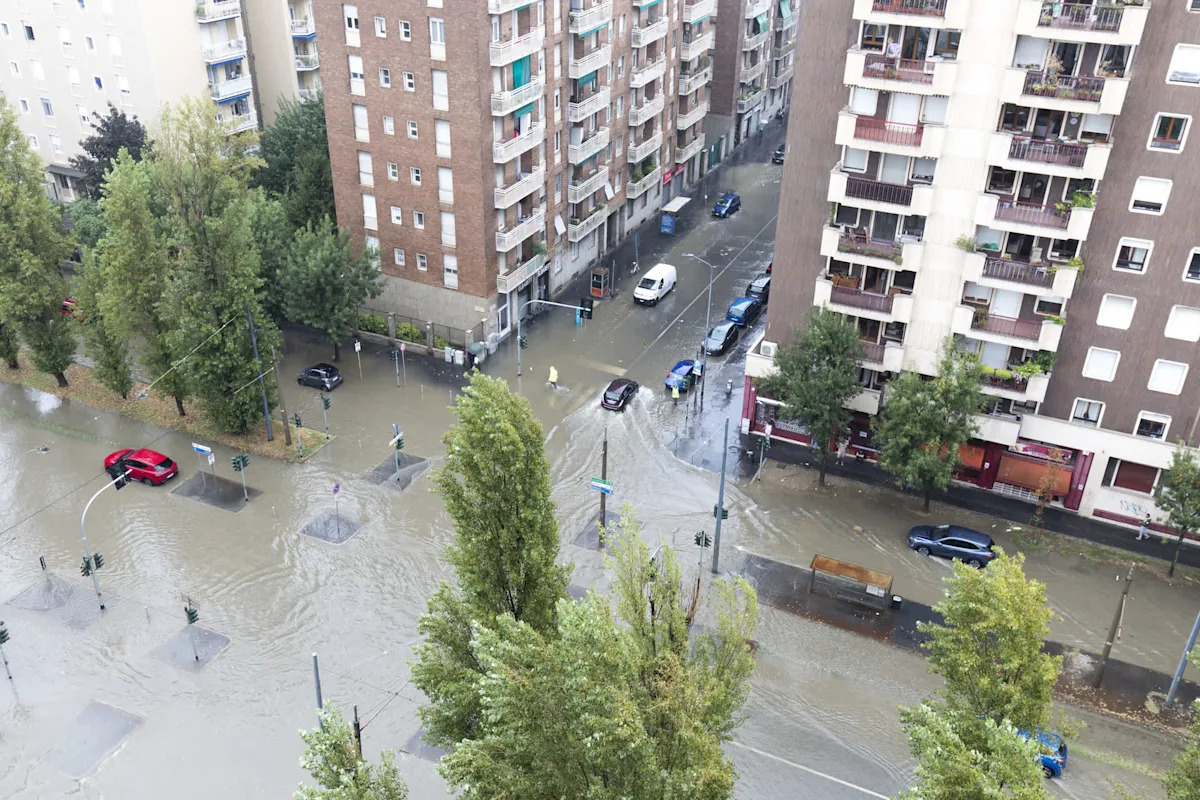Science
Researchers Unveil AI Tech to Accurately Predict Flood Disasters

A team of researchers from Pennsylvania State University has developed an innovative model that significantly enhances the accuracy and speed of flood predictions. This advanced technology aims to improve safety measures against natural disasters, which not only devastate property but also disrupt communities and instill a sense of insecurity in affected populations.
The new model leverages artificial intelligence to analyze vast amounts of data, allowing for quicker predictions compared to traditional methods. Professor Chaopeng Shen, a civil and environmental engineering specialist, emphasized the model’s versatility, stating, “With our new approach, we can create simulations using the same process, regardless of the region we are trying to simulate.”
Transforming Flood Prediction Processes
Historically, hydrologists relied on the National Oceanic and Atmospheric Administration (NOAA)’s National Water Model, a widely respected but slow tool. Traditional calibration required feeding decades of river data into the system one site at a time, making the process labor-intensive and costly. Shen described this method as “time-consuming, expensive, and tedious.”
The researchers’ new technique utilizes AI systems to identify patterns within extensive datasets. Rather than recalibrating for each river basin, the model can generalize information from previous readings. Co-author Yalan Song noted that the neural network applies general principles it interprets from past data to enhance prediction accuracy.
While the model incorporates physics-based rules governing water behavior, it adapts rapidly to new geographical areas. It effectively maintains the integrity of water physics while allowing the AI to learn from anomalies, such as rare storm events. Song highlighted that this approach improves predictions of extreme rainfall compared to older methodologies.
Efficient and Scalable Solutions
To validate their model, the researchers analyzed 15 years of river data and tasked the system with simulating 40 years of streamflow. The results showed that the AI’s projections were approximately 30% closer to actual recorded data across 4,000 sites. Shen stated, “With a trained neural network, we can generate parameters for the entire U.S. within minutes,” underscoring a dramatic reduction in processing time. Work that previously required weeks on multiple supercomputers can now be completed within hours using a single machine.
The implications of this technology extend beyond flood prediction. Similar AI-driven methods have been utilized in various fields, including the design of safer solid-state batteries and urban vegetation mapping for effective cooling strategies. Additionally, ongoing research at institutions like MIT explores AI applications in nuclear fusion studies.
Despite the considerable energy and water consumption associated with training these models, recent studies, such as one conducted by Hugging Face and Carnegie Mellon University, indicate a shift towards more sustainable practices within the industry. As the focus moves to renewable energy sources, this advancement in flood prediction technology could provide communities with crucial time to prepare for disasters, potentially saving lives and preserving livelihoods.
As researchers continue to refine and implement these predictive models, the hope is that communities will benefit from enhanced safety measures, ultimately leading to more resilient societies in the face of climate-related challenges.
-

 Science2 weeks ago
Science2 weeks agoNostradamus’ 2026 Predictions: Star Death and Dark Events Loom
-

 Technology1 month ago
Technology1 month agoOpenAI to Implement Age Verification for ChatGPT by December 2025
-

 Technology6 months ago
Technology6 months agoDiscover the Top 10 Calorie Counting Apps of 2025
-

 Health4 months ago
Health4 months agoBella Hadid Shares Health Update After Treatment for Lyme Disease
-

 Health4 months ago
Health4 months agoAnalysts Project Stronger Growth for Apple’s iPhone 17 Lineup
-

 Health4 months ago
Health4 months agoErin Bates Shares Recovery Update Following Sepsis Complications
-

 Technology4 months ago
Technology4 months agoElectric Moto Influencer Surronster Arrested in Tijuana
-

 Technology5 months ago
Technology5 months agoDiscover How to Reverse Image Search Using ChatGPT Effortlessly
-

 Technology6 months ago
Technology6 months agoMeta Initiates $60B AI Data Center Expansion, Starting in Ohio
-

 Technology6 months ago
Technology6 months agoRecovering a Suspended TikTok Account: A Step-by-Step Guide
-

 Education4 months ago
Education4 months agoHarvard Secures Court Victory Over Federal Funding Cuts
-

 Technology2 months ago
Technology2 months agoDiscover 2025’s Top GPUs for Exceptional 4K Gaming Performance





















